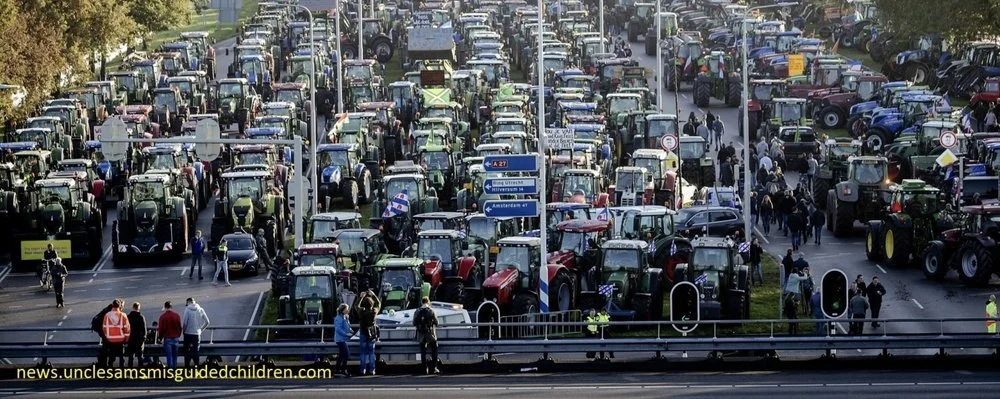Recent Dutch Crisis: Farmers Protest Against New Climate Change Policy
The most recent heatwave serves as a reminder for everyone of the need of taking immediate action to combat climate change. We need regulations that guide farmers in better managing their agricultural input and improving their farming practices to be able to combat climate change while growing food. Agriculture will continue to be impacted by climate change, so we must adapt to it. The EU Green Deal initiative aims to outline the type of change that is required to combat climate change. The Dutch government is to be the first to finally act on the matter after stalling, but the farmers are not pleased about it.
Which is more crucial: Implementing regulations to tackle climate change or maintaining peace among farmers? And how can everyone reach an effective consensus in favor of a single objective—fighting climate change? Even while it may seem tough to address these uncomfortable concerns, the good news is that we have started to do so.
The Netherlands has been paralyzed by farmer demonstrations over the country's new environmental targets, which call for a net 50% reduction in nitrogen oxide and ammonia emissions by 2030. The goal is to step up our collective efforts to combat climate change. According to the farmers, "it will result in the closure of 50% of the agricultural businesses in the Netherlands." Additionally, there have been protests in solidarity in Poland, Germany, Italy, and Spain.
This incident wasn't unique. Back in 2019, when the German government imposed a new environmental restriction, farmers in Germany and France were also protesting. The approach aimed to prevent water pollution by implementing stricter standards for agricultural input usage. The motivation for this policy resulted from Germany's exposure to significant EU fines for exceeding the nitrate limit found in groundwater, which was driven mainly by agriculture. Back then, farmers feared that "German agriculture would disappear, everything would be imported from outside, and that is not what the populace wants."
These demonstrations are significant because they serve as a case study for the level of political support for Europe's expensive environmental measures. However, companies will need to make additional sacrifices if they want to reach net zero by 2050, so environmental restrictions will tighten even further in the future. Nobody is quite sure yet, though, how much the Europeans are willing to give up to achieve net zero.
It is clear that new environmental measures are needed to slow the rate of global warming. It is also obvious that there will be conflicts between the government's new environmental policy and those of farmers and agribusinesses. How to address that? I believe we can address this partly by offering transparency through data, allowing the government to build data-driven policy and farm-specific control. On the other hand, if farmers implement improved decision-making methods, they may be certain that it will not lead to the closure of their businesses.
In our research, we discovered that reducing input does not always imply reducing output. Farmers can adopt data-driven decision-making methodologies to cope with these new policy challenges. So, we think farmers do not need to be concerned just yet. Furthermore, while the new policies will undoubtedly put added strain on farming communities, we believe they will also foster innovation in this space. European farmers will eventually benefit from "first-mover advantages" in the net-zero space. But input manufacturers and retailers will undoubtedly suffer, but they can innovate better business models to compensate for lower demand. We have some ideas on how to carry out this. We will talk more about optimal solutions with data in coming days. Do not hesitate to contact us if you want to learn more about it.


